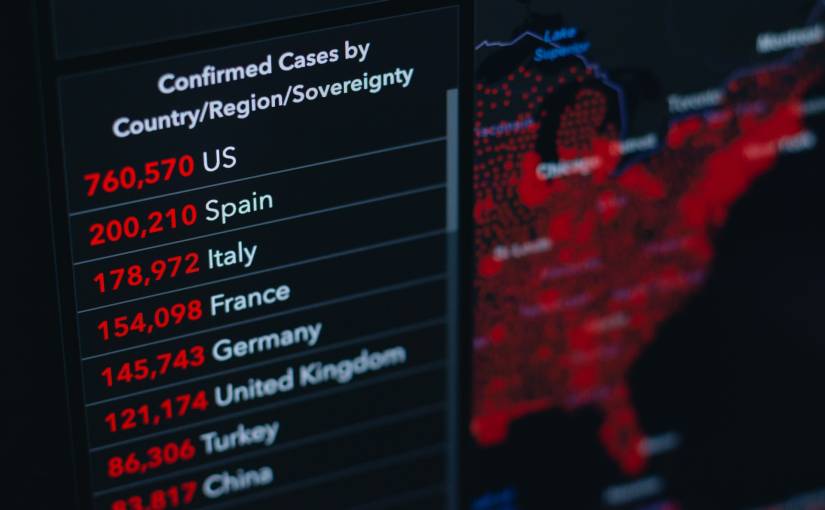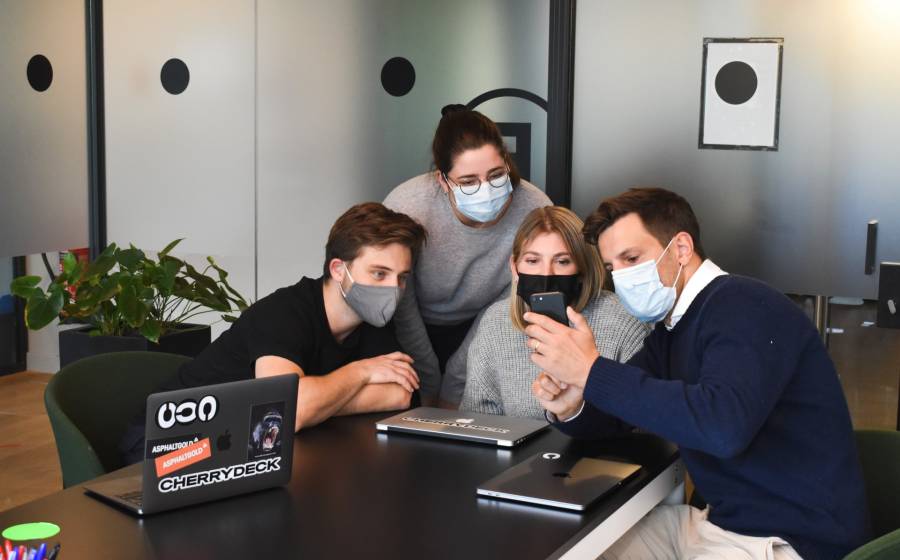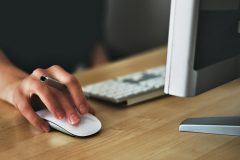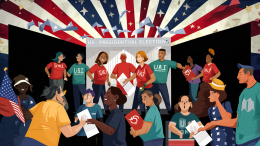In 2020, the world almost came to a stop. Everything closed down or had to be put on hold. The COVID-19 pandemic caused shutdowns beginning in early 2020, and over a year later, the world is still facing struggles. Families still suffer from loved ones getting sick with the virus, businesses are committing to remote employees, and some people and industries just haven’t been able to resume normal operations yet.
The data economy is no different. It, too, has been impacted by COVID-19. But how?
The Data Economy Drives Better Decision-Making
The data economy is the monetization and distribution of data. Collecting data is how people and businesses can study statistics and information, which in turn helps other people and businesses make the best decisions, like what business action to take next in a complex market.
A 2020 global study found that 77% of companies located in the United States practiced data-driven decision-making. As a result, it’s no longer appropriate to rely on instinct and experience when making choices that could dramatically affect profits, reputation, and other critical factors.
For example, research might reveal that three-quarters of millennials in a specific country are interested in reducing how much meat they eat. A multinational fast-food brand could use that information as justification to introduce a plant-based burger to consumers there. If another dataset says a particular company might fare well if it edges into a specific new territory, that’s the data economy at work as well.
This increased reliance on trustworthy information boosted the perceived value of information that could unlock previously hidden insights. Thus, data brokers and data markets exist to collect, organize, and mine data and then sell it to whichever party would most benefit from the insights within.
COVID-19 Accelerated and Altered Data Collection and Usage
COVID-19 changed much about data gathering. Since the beginning of the pandemic, people heavily relied on data, statistics, and graphs about case numbers to keep them up-to-date on what the pandemic is doing.
But some aspects of data collection have been interfered with because of the new regular associated with the virus. For example, we weren’t allowed to go anywhere except to work and grocery stores for months. Likewise, you couldn’t visit family members or hospitals.
Some countries also used anonymized, aggregated location data to determine how closely the residents of particular areas abided by rules about only leaving home for essential reasons during lockdowns.
Remote Working Altered Data Collection Strategies
The global health crisis drastically changed working arrangements, especially since many leaders decided staying home was the safest option for employees when possible. As a result, a Stanford University researcher found that 42% of the U.S. workforce was working from home in September 2020.
The rise in people clocking in at home instead of commuting to offices decreased workplace leaders’ face time with employees. That reality changed the kind of data employers collected from their teams.
Executives were already gathering information to improve company output, address bottlenecks, and enhance employee experiences. However, many also began collecting productivity data about individual workers, and especially those off-site.
That trend could result in new legislation stipulating how and when employers can watch remote workers’ activities. For example, the Polish Labor Code specifies that they can monitor work-related email usage, plus workers’ interactions with relevant platforms and software.
The Pandemic Required Flexibility and Openness
When people work from home, it can sometimes be hard to stay focused. There are so many things that could distract you. That’s why the scores from a productivity tracker are not always the best ways to gauge someone’s output. For example, if a supervisor sees a worker’s daily levels drop, decreasing metric alone does not necessarily cause immediate concern.
However, it’s an excellent opportunity for one-on-one engagement. For example, a quick chat with the worker with the low scores could reveal that a close relative was recently hospitalized, making it challenging to keep their mind on their tasks.
In addition, some jobs may face obstacles moving to a home setting rather than the typical office setting. For example, an employer may have to invest in new systems and setups to work as efficiently as before.
They may also collect data from worker polls to determine which tools would help remote employees most and which barriers frequently prevent them from meeting deadlines and expectations. But many opportunities have presented themselves as well.
For employers and business owners, the COVID-19 pandemic impacted data collection and incorporated extra data collection in other areas of work.
The Data Economy Must Protect Privacy
Some consumers are wary of data collection and how it is consumed. For example, a 2019 Pew Research Center study revealed that 81% of U.S. adults felt they had little or no control over the data companies collect from them.
Another 79% said they were somewhat or very concerned about how companies gather and utilize their information. Gaining and retaining customer trust requires companies to commit to ethical handling of people’s details.
Bartering as a Beneficial Possibility
According to the Harvard Business Review, the concept of bartering is one of the best ways to accomplish this, as it helps create a better system to protect consumers. So, while money does drive the economy, other transactional systems can benefit us.
You may not even realize that you’re partaking in bartering every day. Do you use Apple or Google email or social media, such as Facebook or Instagram? You’re exchanging your consumer data for the online services provided by these companies. So bartering is already a regular part of your everyday life.
Balancing Privacy and Public Health
A few months into the pandemic, smartphones introduced a feature you could turn on that could alert you if you had been exposed to COVID. Tracking features on smartphones aren’t anything new, but they became capable of alerting users if there was a chance they were exposed to the virus. This required a data economy in the form of cooperation between users, public health oversight offices, and tech companies.
Some may find this to be helpful, but some feel as though it infringes on their privacy. That’s why users may opt-in at will or not use it at all. However, the more this feature is used, the more valuable it is for everybody, since it collects more data and can draw more accurate conclusions.
Taiwan was able to contain and manage the coronavirus outbreak without the lockdowns that other countries were going through. So how did they do this? There were a few steps they followed, and one was using these smartphone features to trace the virus.
Smartphones were able to monitor those who were most at risk of spreading the virus. Within the first couple of days of the outbreak, a protocol was implemented for those with recent travel histories. These were the people labeled as high-risk. Therefore, it was easy to narrow down some of the people who needed an immediate quarantine to prevent spreading the virus.
Curbing COVID With Smartphone Location Data
Our phones are progressively more helpful in tracking location-based trends because of innovative mapping and data-gathering technology. For example, before COVID, our phones didn’t have the ability to draw conclusions about viral spread and exposure. But, in the instance of Taiwan, once COVID blew up as it did, the phones could detect travel histories, which is a red flag that those people could have picked up the virus from somewhere else.
If smartphones didn’t have that GPS feature, they wouldn’t be able to monitor your whereabouts and alert you of a potential threat. With these features, you could be protecting yourself from subjecting a loved one to inadvertent and potentially deadly harm.
As companies continue developing and working on the COVID exposure feature on our smartphones, you may feel more and more like you’re being spied on. You may feel like you’re losing some of your privacy because your travels are being reported.
However, using smartphones to warn people about the need to isolate may be the key to ending the pandemic. In its early stages, public health officials emphasized that contact tracing was vital for reducing how rapidly the virus spread, and most stick to that guidance today.
Data and Associated Technologies Can Strengthen Our Society
Data is an essential aspect of our world. Once data is collected and turned into insights, we use it to keep up with even the fastest-moving current events. It’s how companies understand what draws in consumers and how engineers study the effects of new materials or fabrication techniques.
Conclusion
The pandemic has changed our world in more ways than one, and we all have to adjust to life with new priorities. For employers, business owners, and technology developers, COVID represents a watershed moment in how business is done and how industrial insights get shared and applied.
Technology could be the answer to protecting the public from future threats while further developing and improving a host of positively disruptive technologies.
Image Credit: Inner article: Provided by the author; Thank you!
Top Image Credit: Provided by the author; Kobu Agency; Thank you!











